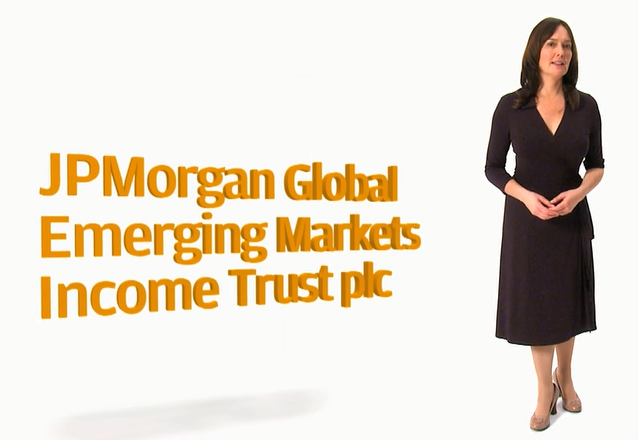JPMorgan Global Emerging Markets Income held back by discount widening – For the year ended 31st July 2018, JPMorgan Global Emerging Markets Income recorded a total return on net assets of +6.6%. This compares with a return on the benchmark index, the MSCI Emerging Markets Index with net dividends reinvested (in sterling), of +4.9%. The total return to shareholders for the year including dividends was +3.5%, as the discount widened from 3.4% at the beginning of the financial year to 6.4% at 31st July 2018.
The Board declared three interim dividends of 1.0p per share and has announced the payment of a fourth interim dividend of 2.0p per share. This brings the total dividend for the year to 5.0p, a 2% increase from last year.
Extract from the manager’s report
“Al Rajhi Bank is the world’s largest Islamic bank and one of the Company’s largest holdings. It has been a strong performer over the year. The bank’s February dividend announcement sent a very positive signal to shareholders and markets alike as it increased its 2017 dividend by 78%, reflecting the bank’s strong capital position and management’s confidence in its future. The share price has performed well as investors are continuing to focus on positive fundamentals, while the announcement from MSCI that Saudi Arabia will be reclassified as an emerging markets territory from 2019 added to the positive sentiment. During the period we added to our position given our increased conviction in the company’s fundamentals.
Looking at the Company’s geographical breakdown, China (including Hong Kong) remains our largest country exposure. The US economy may still be the world’s biggest, but China is hot on its heels and growing at a much faster pace. However, the Chinese economy is not immune from global economic challenges and Chinese Premier Li Keqiang acknowledged difficulties in keeping its economy on track when he spoke at a World Economic Forum conference in mid-September. He has also stated his expectation that, looking ahead, the Chinese economy will deliver a more modest but also more sustainable growth rate.
Over the period, the contribution in aggregate from China was relatively flat. However, we continue to believe the China A-share market, and consumer-focused companies in particular, offers some interesting long-term opportunities and this year we have added further exposure to consumer and industrial companies.
Our holdings in China A-shares including Jiangsu Yanghe Brewery and electrical appliance manufacturer Midea Group made a positive contribution overall, but this was offset by the negative impact from not holding top performing e-commerce names Alibaba and Tencent, which offer no yield and as such do not fit our investment criteria.
The second half of the Company’s financial year saw increased news flow surrounding Russia, where we are overweight because of our holdings in specific Russian stocks. The US government has imposed an array of economic penalties over recent years and the most recent sanctions have caused strong market reactions and precipitated weakness in the Russian rouble.
None of our Russian holdings were directly named in the sanctions although their performance was impacted by the broader market decline. We took the opportunity to rotate our exposure within the market, selling metals and mining company Norilsk Nickel, where we felt the risk-reward ratio had deteriorated. We increased our position in Russia’s largest bank Sberbank. Further sanctions risk can never be ignored (though we think it is relatively low for Sberbank) but we also saw a significant valuation opportunity due to price weakness. During April, as scheduled, Sberbank announced its dividend and pleasingly, doubled it, despite the market noise; this was clearly a key positive indicator for us, although Sberbank’s share price has remained volatile in recent months.
Looking at other geographical sectors, our exposure to markets such as Brazil had a negative impact on portfolio performance. As well as a general increase in market concerns over those emerging markets considered the most ‘vulnerable’, Brazil’s economy was hit by a truckers’ strike which damaged domestic confidence. Elsewhere, the portfolio has only modest exposure to Turkey, but this has been painful: the country appears to be in the midst of a true economic crisis, with inflation spiraling upwards and, as referenced earlier, the decline of the Turkish lira is well documented.
By sector, Financials is by far the Company’s largest and provided the most positive material impact over the year. Information Technology is the portfolio’s second largest sector and, despite the absence of Tencent and Alibaba, also made a positive contribution to performance. Our anti-cyclical exposure detracted moderately from performance, as did our underweight exposure to Materials and Energy, in the light of rising oil prices and a general strengthening of commodities over the period.”
JEMI : JPMorgan Global Emerging Markets Income held back by discount widening
